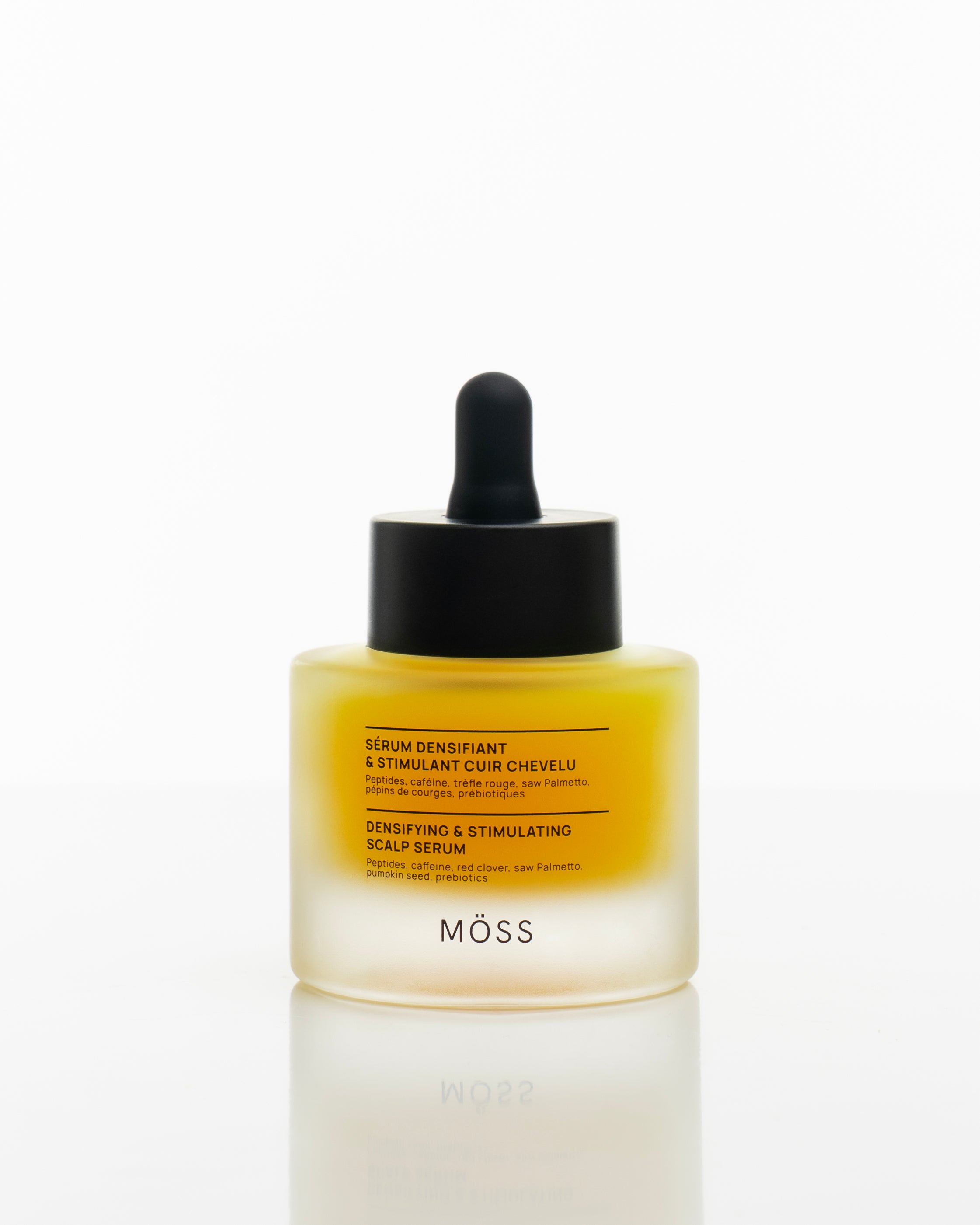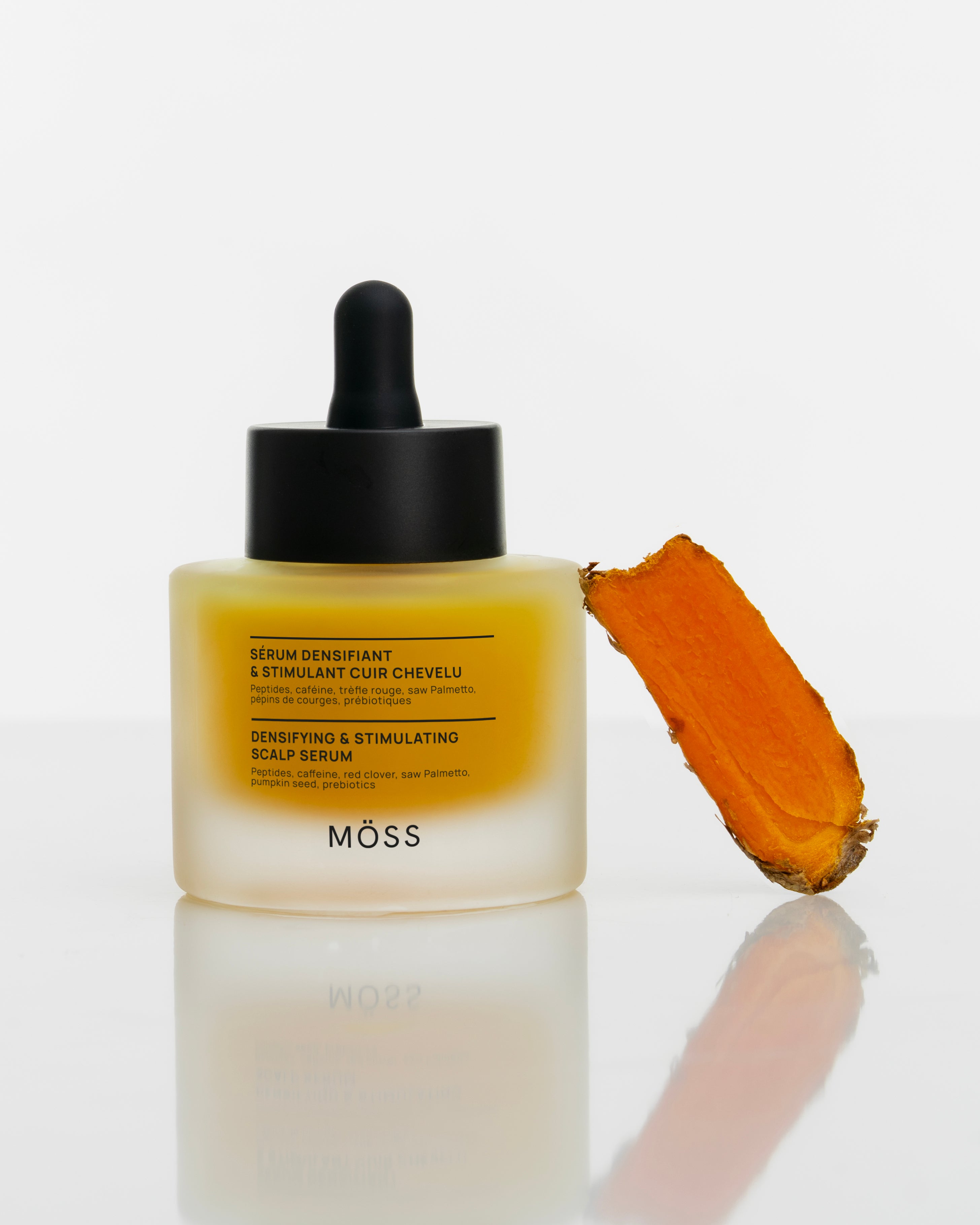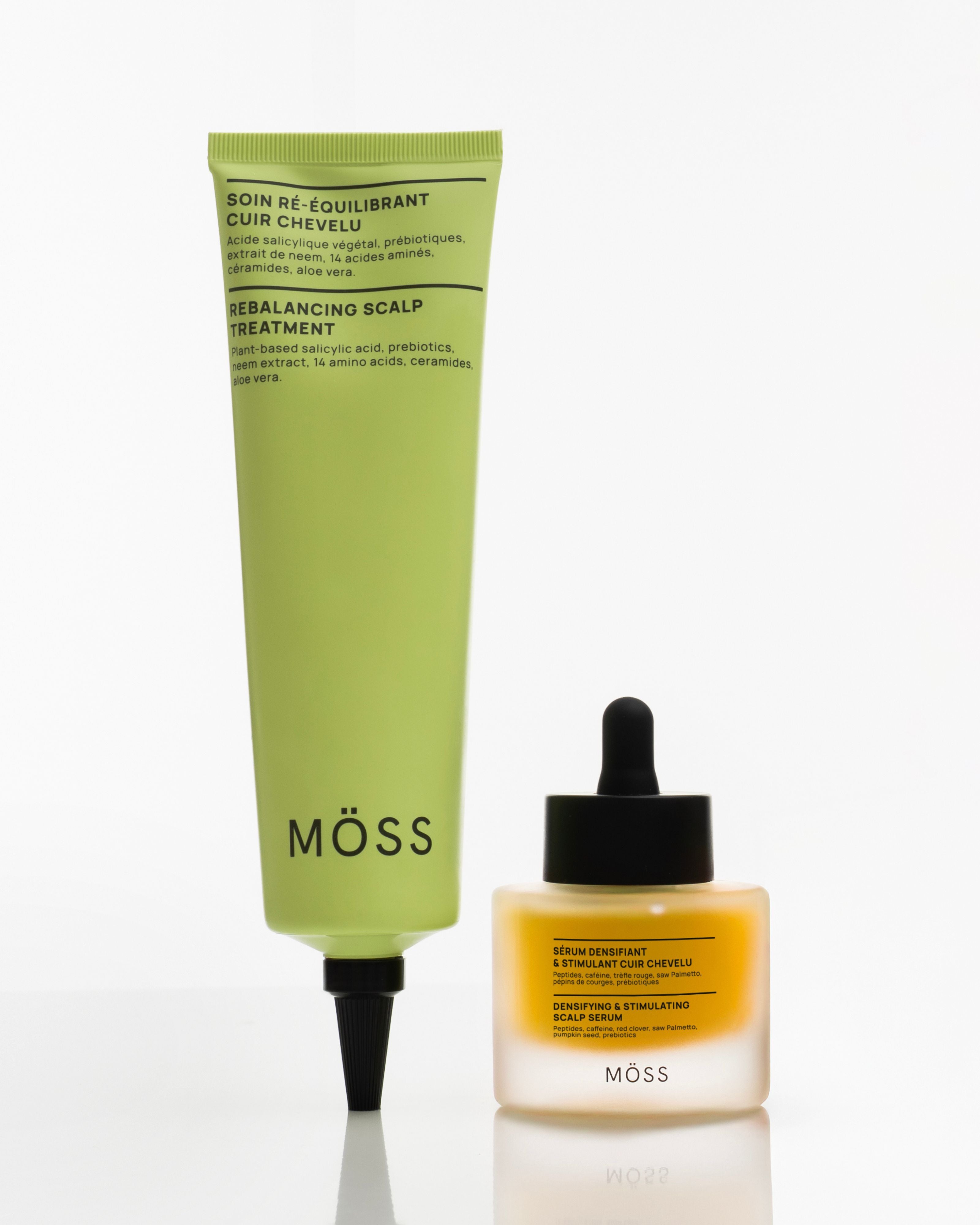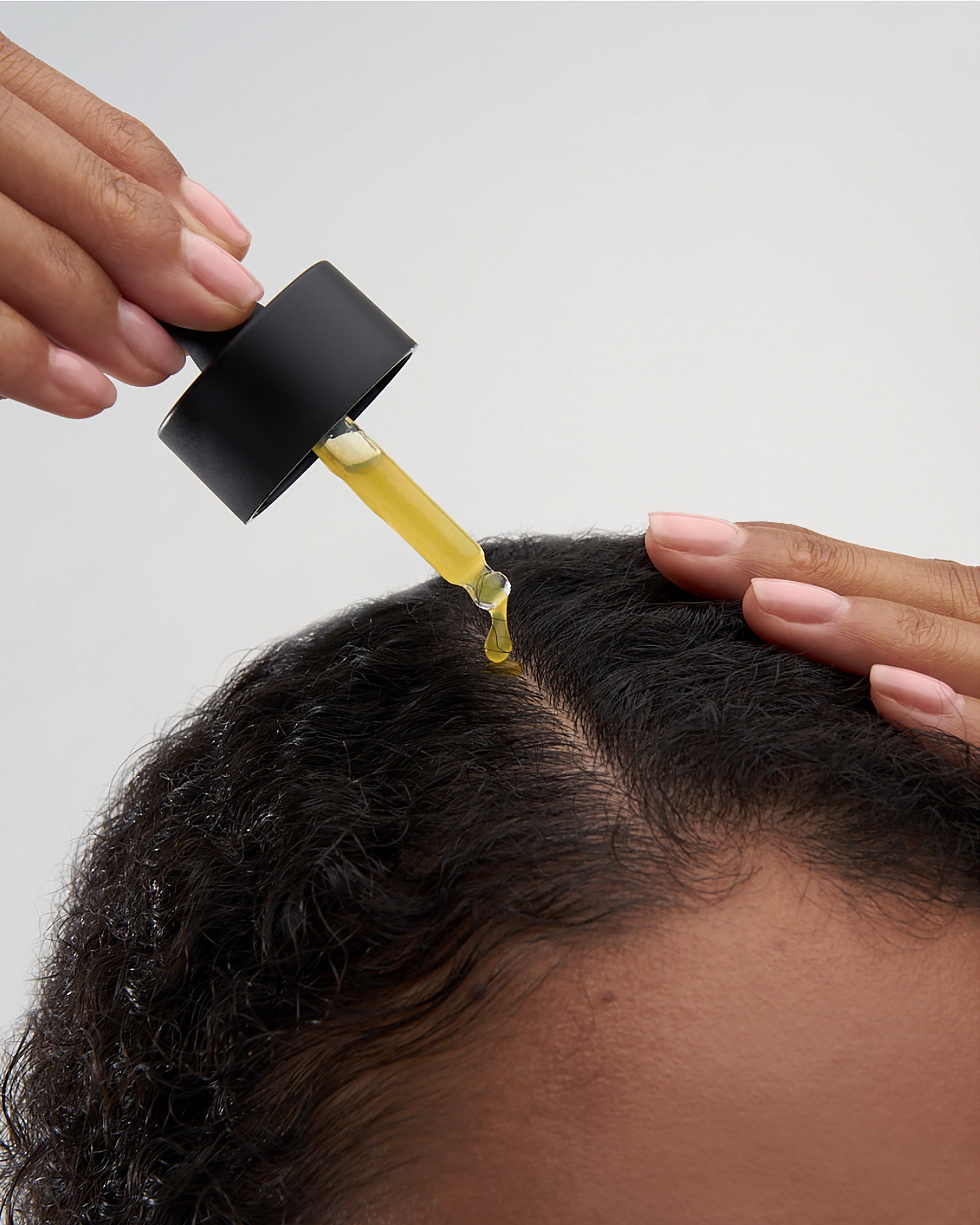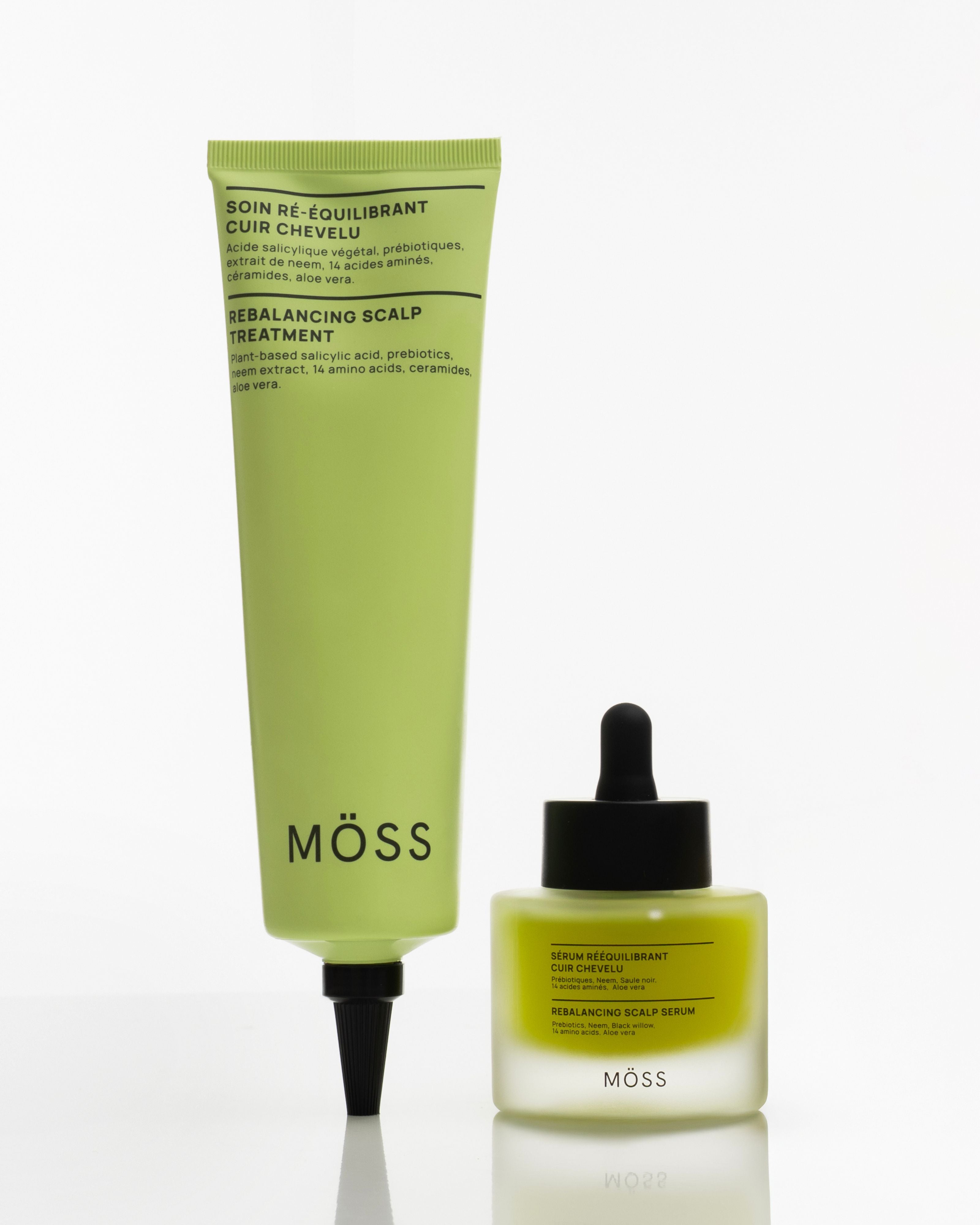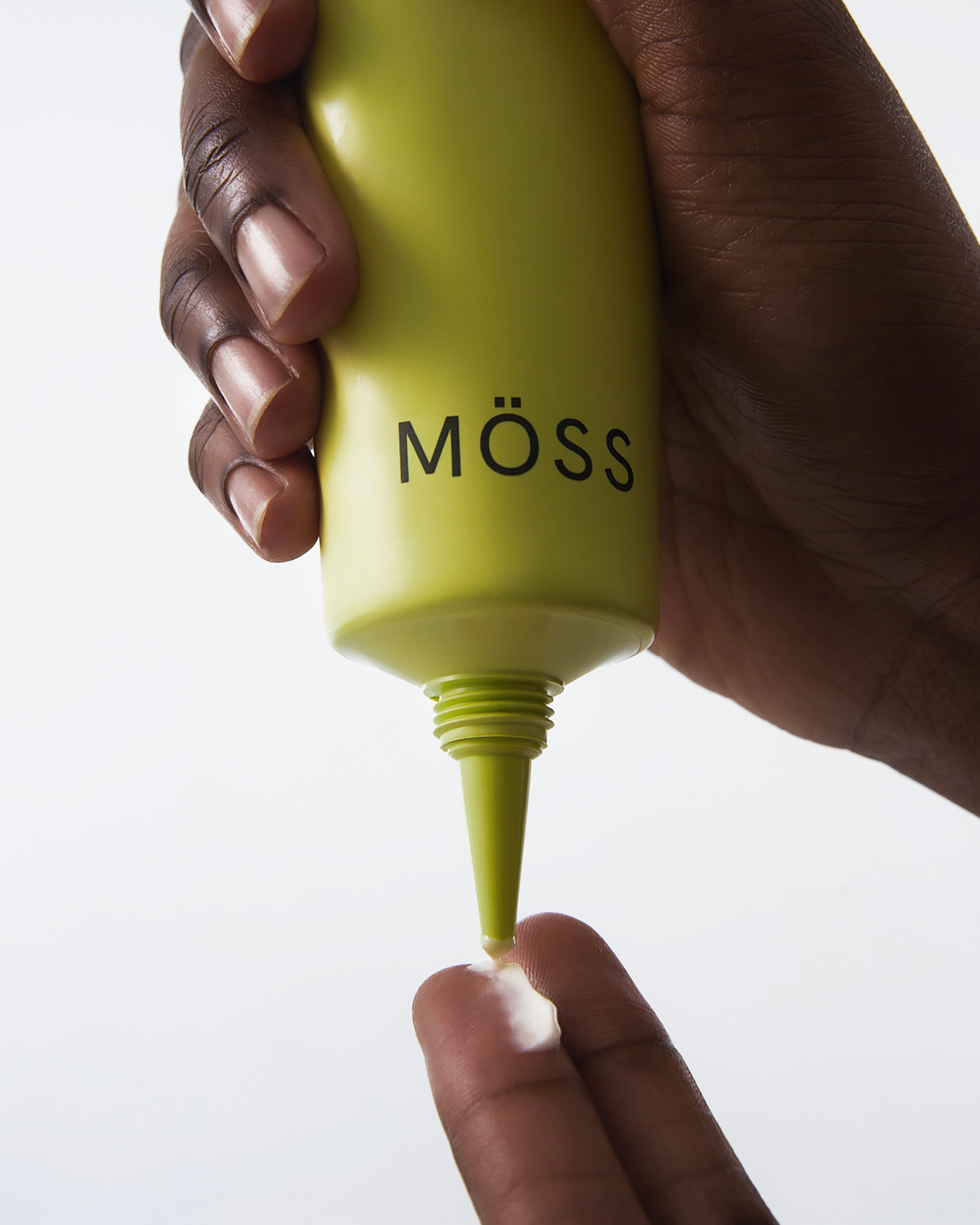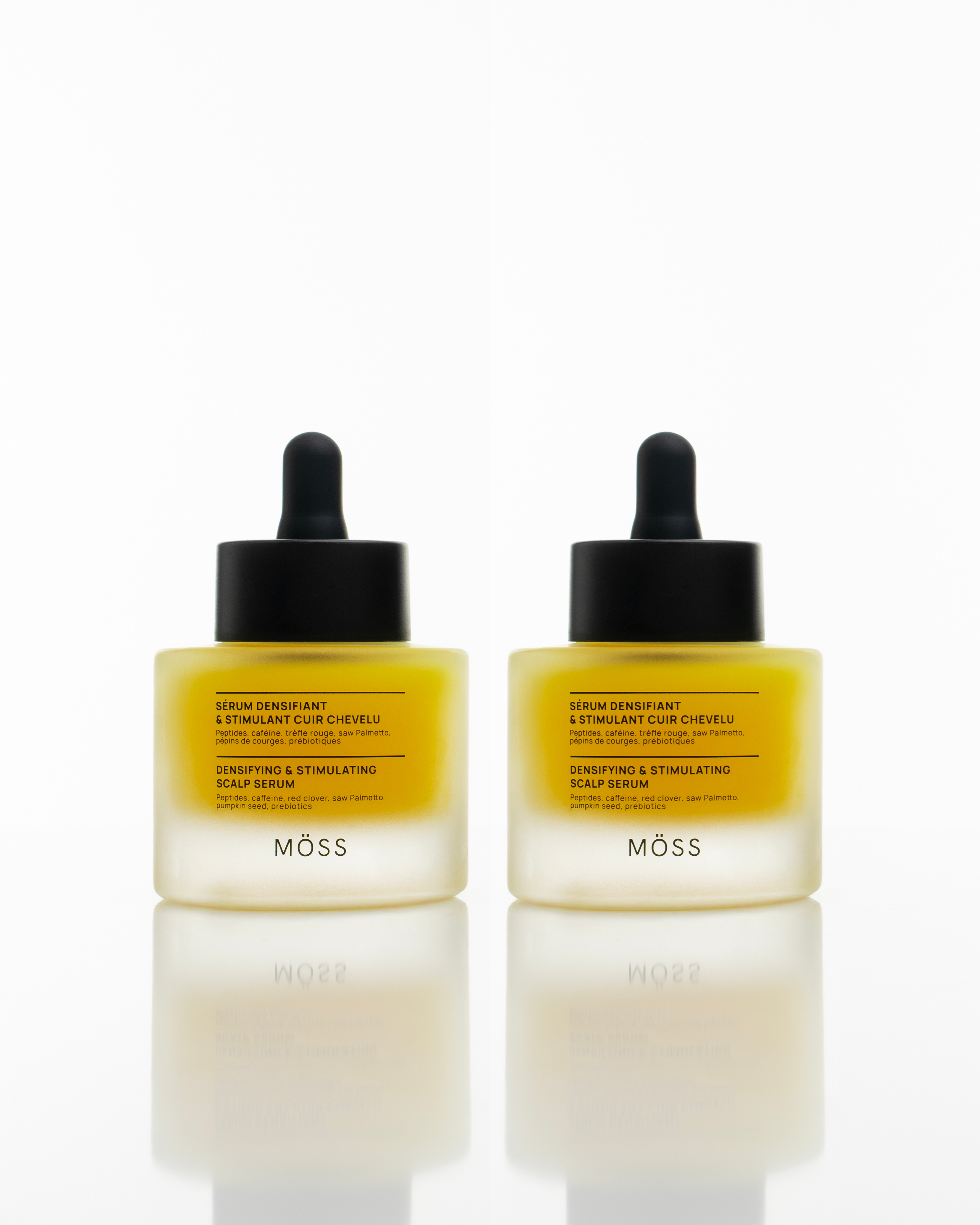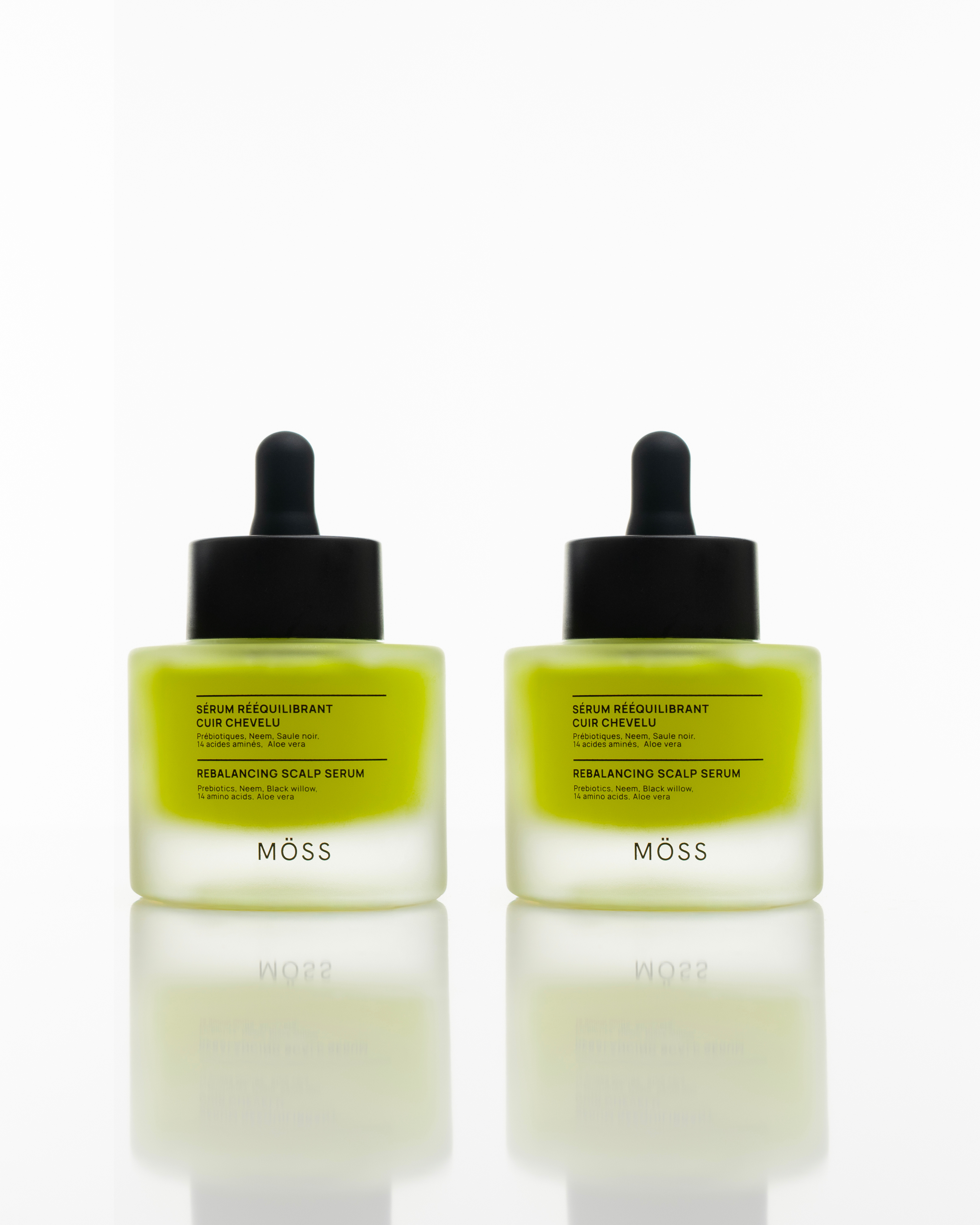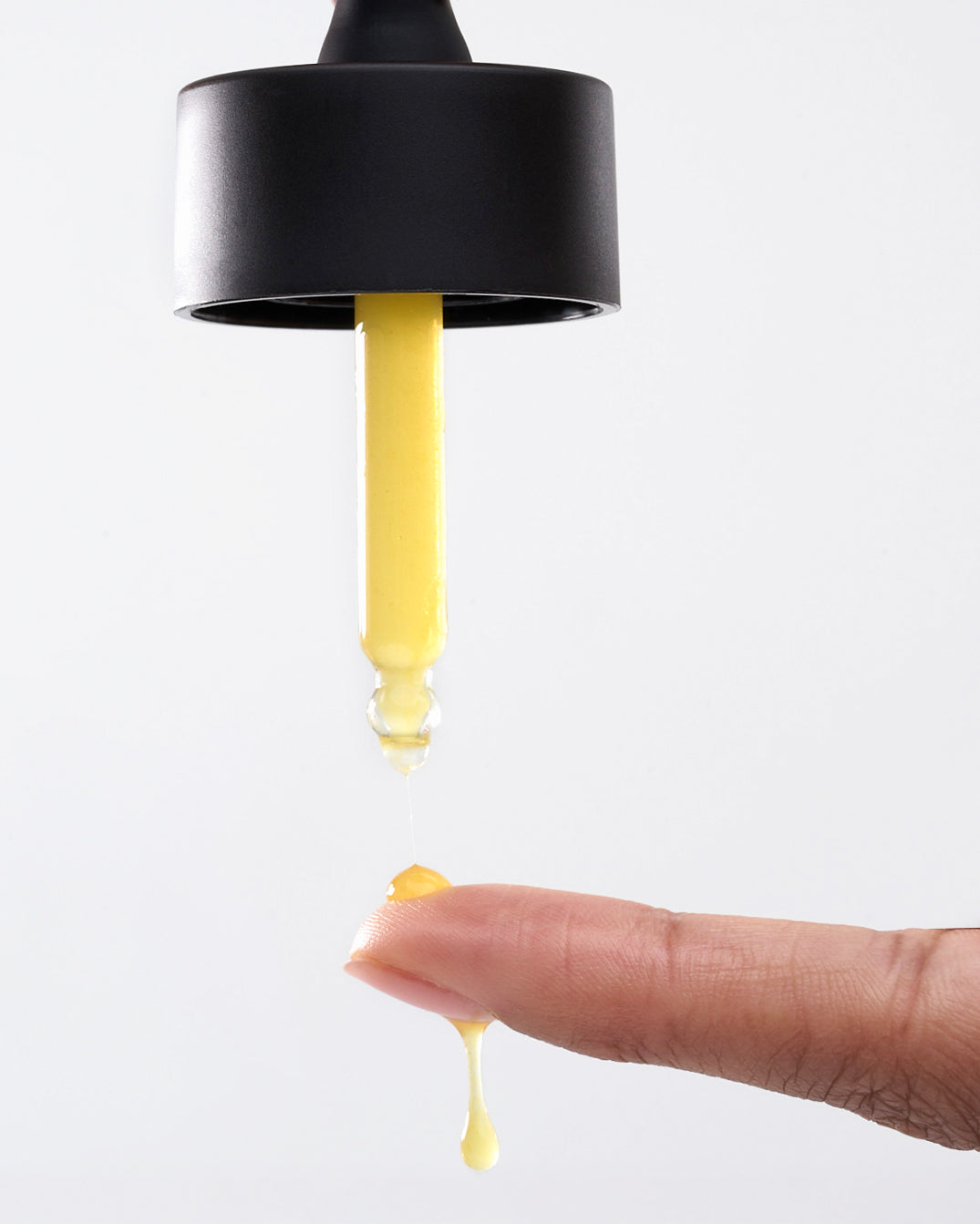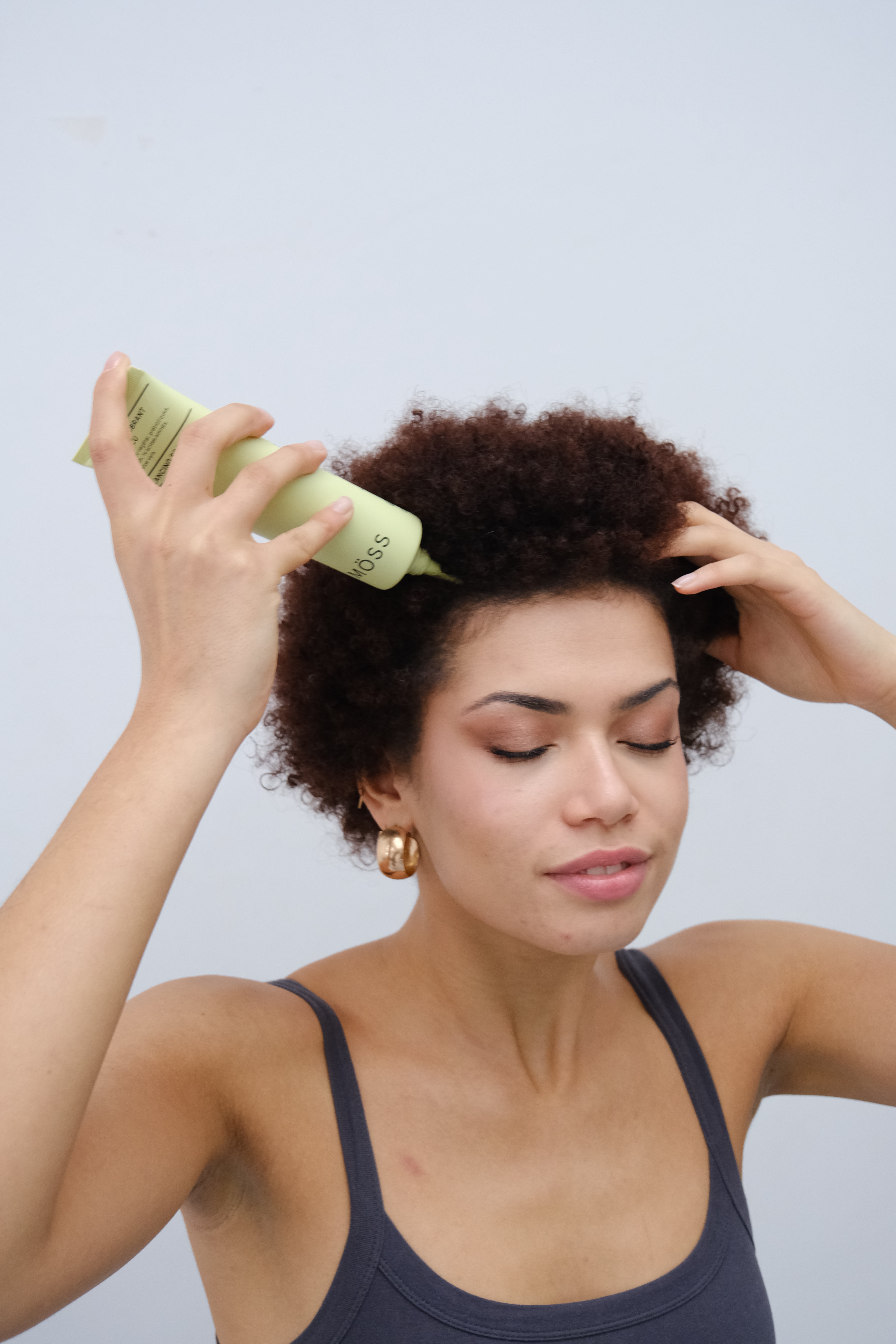Are oils good for the scalp?
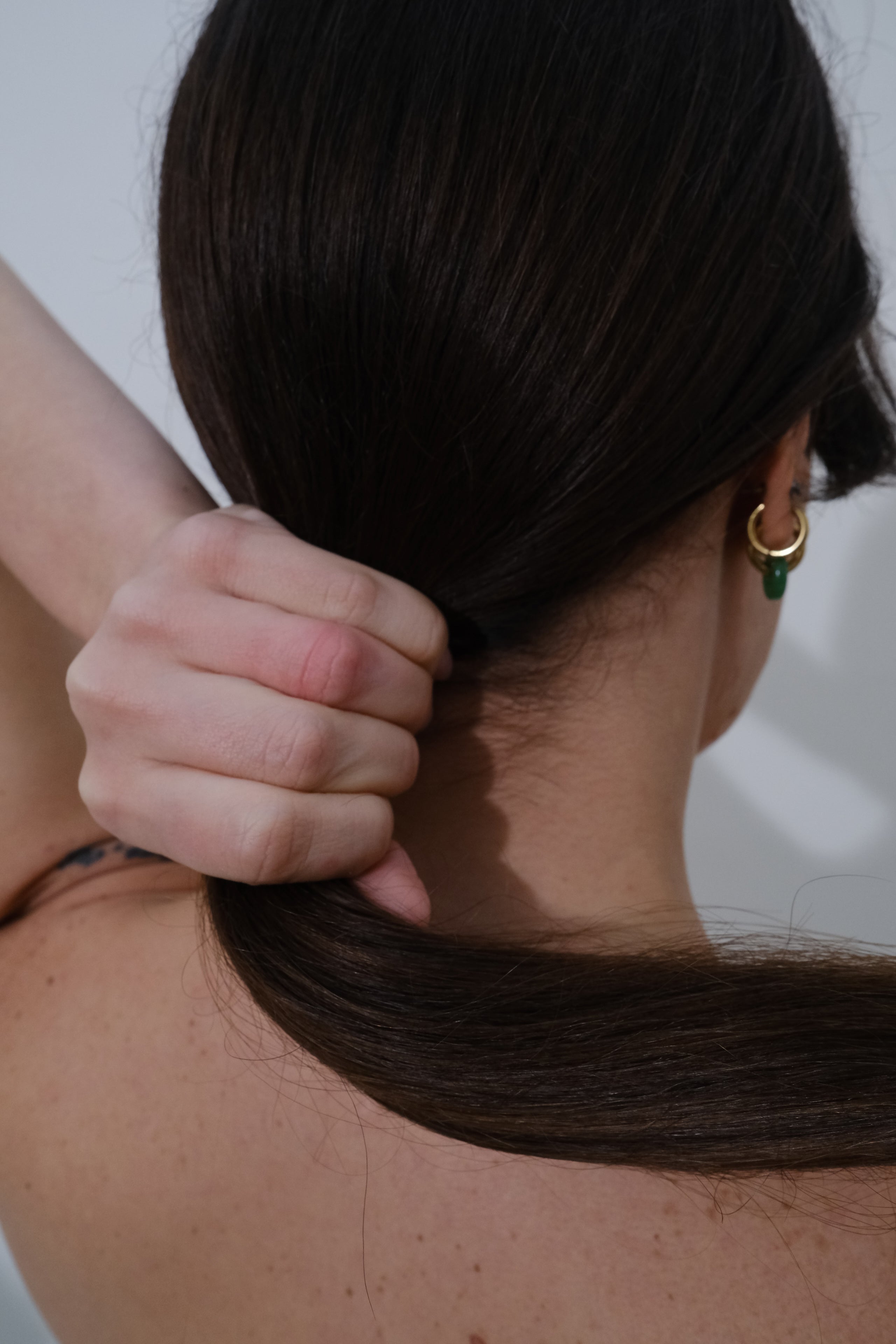
Using oils for scalp care is a common practice, but it's one that's been scientifically debated. While oils can offer many benefits, their impact varies depending on scalp type and specific concerns, such as dandruff or the itching .
The benefits of oils for the scalp
Vegetable oils are rich in essential nutrients, which gives them several beneficial properties:
-
Nutrition : Oils like jojoba oil or argan oil penetrate deep to nourish a dry or damaged scalp and maintain scalp moisture.
-
Soothing irritations : Certain oils, such as chamomile or calendula macerate, have anti-inflammatory properties which relieve itching and redness.
-
Strengthening hair follicles : Oils rich in essential fatty acids (omega-3 and omega-6) strengthen follicles and promote healthy hair growth.
-
Protection against external aggressions : Oils form a lipid barrier that protects the scalp from pollution, cold or UV rays.
The Limits of Oils: When Should You Be Cautious?
Although oils have many benefits, their use is not without risks, particularly in certain specific contexts.
1. Oily scalp
-
An oily scalp already produces excess sebum. Applying oils can make this situation worse, causing a build-up of oily residue and clogging pores.
-
In this case, it is best to use light oils, such as jojoba oil, which regulates sebum production without weighing down the scalp.
2. Dandruff and proliferation of Malassezia
-
Malassezia furfur is a fungus naturally present on the scalp. It feeds on lipids and can proliferate in cases of excess sebum or oily residue, causing dandruff or seborrheic dermatitis.
-
Oils rich in saturated fatty acids (such as coconut oil) can, in some cases, promote this proliferation. It is therefore recommended to favor antifungal oils.
3. Risk of follicle obstruction
-
Over-applying oil or not rinsing it enough can clog hair follicles, leading to irritation, itching or even hair loss.
-
To avoid this, it is essential to rinse the oils well after application and not to overuse them.
4. Allergic reactions or irritations
-
Some oils can cause skin reactions in sensitive individuals. It is therefore important to do a skin test before use and to favor pure and non-comedogenic oils.
Oils can be excellent allies for taking care of your scalp, provided you use them appropriately and taking into account the specificities of each person. Their impact varies depending on the type of scalp and the problems encountered, such as dandruff or the presence of microorganisms such as Malassezia furfur .
By taking a nuanced approach and following best practices, it is possible to enjoy the benefits of oils while minimizing their adverse effects.
